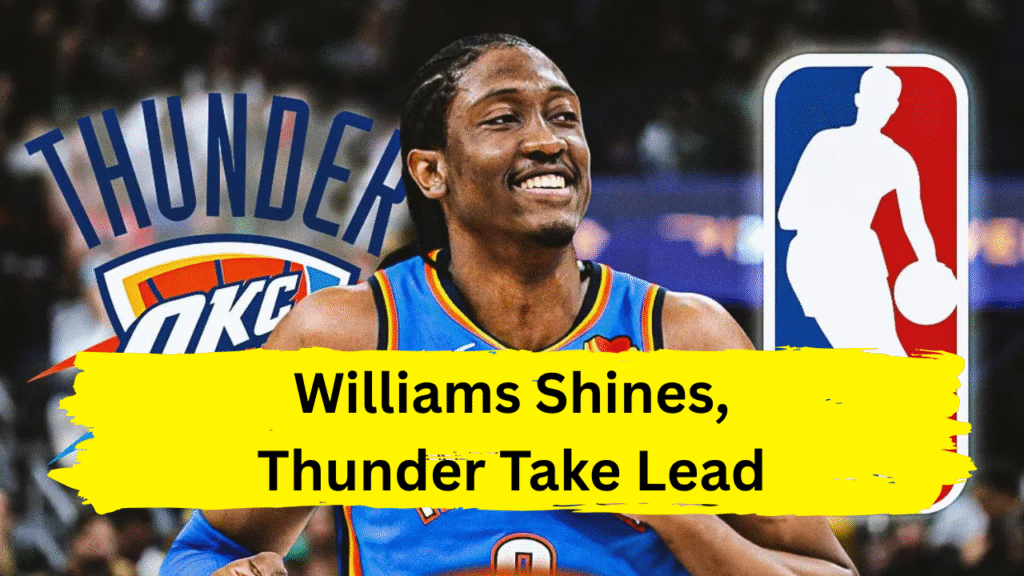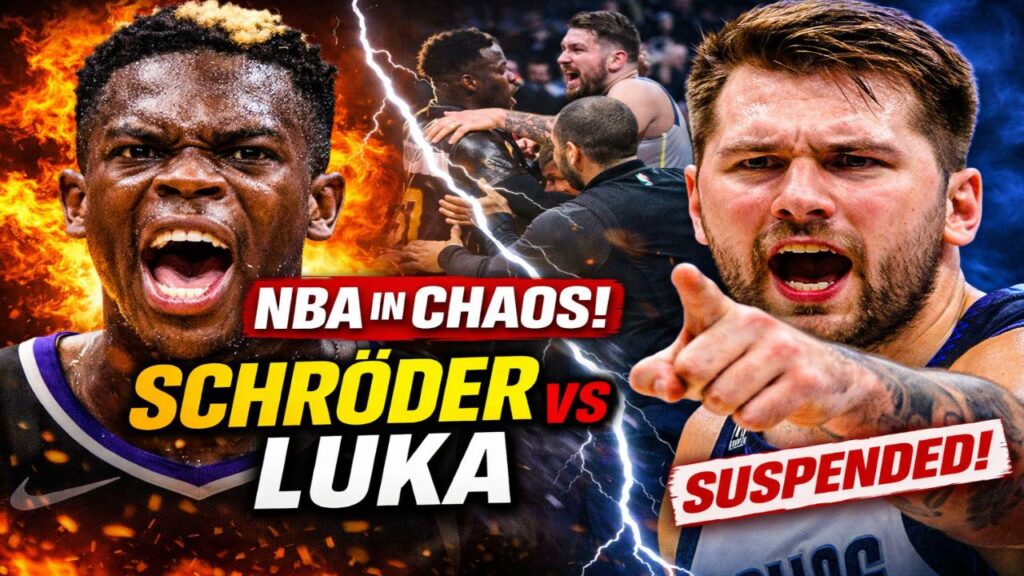In the crucible of the NBA playoffs, where stars are forged and legacies defined, Jalen Williams emerged as Oklahoma City’s unsung hero in a Game 4 thriller that left the Minnesota Timberwolves gasping for air. On a night when MVP Shai Gilgeous-Alexander dazzled with a 40-point near-triple-double, it was Williams’ seismic 34-point eruption—punctuated by icy veins in crunch time—that tilted the scales in the Thunder’s 128-126 victory. With the win, Oklahoma City seized a commanding 3-1 series lead, one step closer to its first NBA Finals appearance in over a decade. This was not just a game; it was Williams’ coronation as a playoff force, blending poise, precision, and a flair for the moment .
The Rise of a Playoff Phenom
Williams’ performance was a masterclass in adaptability. Tasked with elevating his game after a humiliating 42-point loss in Game 3, the second-year forward responded with a career-defining display. He opened the game with a flurry of three-pointers, sinking six of nine attempts from beyond the arc—a personal best in both the regular season and playoffs . His shooting was surgical: 13-of-24 from the field, including a series of contested jumpers that silenced Minnesota’s raucous crowd. But it was his fourth-quarter heroics that etched his name into Thunder lore.
With the game teetering in the final minutes, Williams scored 14 of his 34 points in the fourth quarter, repeatedly answering Minnesota’s rallies. When Donte DiVincenzo drained back-to-back corner threes to tie the game at 79, Williams countered with a pull-up jumper and a catch-and-shoot three to reclaim momentum. Later, with 90 seconds left, he sank another dagger three over DiVincenzo, stretching the lead to five and effectively sealing the Wolves’ fate .
A Symphony of Skill and Strategy
Williams’ breakout was no accident. The Thunder’s offensive scheme deliberately exploited mismatches, leveraging his versatility as a scorer and playmaker. When Minnesota’s Julius Randle switched onto Alex Caruso, Oklahoma City immediately involved Williams in high-screen actions, creating isolation opportunities on the perimeter. When defenders sagged off, he punished them with step-back threes or drives into the paint, where his crafty finishes and floaters kept the Wolves guessing .
His chemistry with Gilgeous-Alexander was equally pivotal. The duo combined for 74 points, with Williams often capitalizing on the defensive attention drawn by the MVP. A falling Gilgeous-Alexander even dished a no-look, between-the-legs pass to Williams for a critical three-pointer in the fourth quarter—a moment that encapsulated their symbiotic partnership .
Defensive Grit Meets Offensive Brilliance
While Williams’ scoring stole headlines, his defensive contributions underscored his two-way value. He logged three steals, including a pivotal interception in the final seconds to thwart Minnesota’s desperation inbound play. His length and anticipation disrupted passing lanes, while his ability to guard multiple positions allowed OKC to switch seamlessly against the Wolves’ dynamic scorers .
This defensive intensity mirrored the Thunder’s collective identity. Despite Minnesota’s bench outscoring OKC’s reserves 64-27, Williams and starters like Lu Dort clamped down on Anthony Edwards and Julius Randle, limiting them to a combined 21 points on 6-of-20 shooting. The Thunder’s 19 offensive rebounds—matched only by Minnesota’s—and 22 points off 21 Wolves turnovers further highlighted their tenacity .
The Clutch Gene
Williams’ poise under pressure was the defining narrative. In a game featuring 18 lead changes, he repeatedly silenced Minnesota’s surges. His pull-up jumper over DiVincenzo with 1:30 remaining—a shot coach Mark Daigneault later called “the kind of confidence we’ve come to expect from him”—exemplified his fearlessness. Even when Gilgeous-Alexander coughed up a late turnover, leading to a Jaden McDaniels three that cut the lead to two, Williams remained unfazed, trusting his preparation and rhythm .
His performance echoed his regular-season growth. Named to the All-NBA Third Team earlier this year, Williams has averaged 21.4 points in the playoffs, a significant leap from his rookie campaign. Yet, Game 4 felt like a tipping point—a declaration that he belongs among the league’s elite wing scorers .
A Franchise’s Future, Forged in Fire
For Oklahoma City, Williams’ emergence is a revelation. A team once viewed as too young and inexperienced now stands on the brink of the Finals, buoyed by a core of Gilgeous-Alexander, Chet Holmgren, and Williams—a trio that combined for 95 points in Game 4. Williams’ ability to thrive in high-stakes moments alleviates pressure from SGA, transforming the Thunder from a one-star show into a multifaceted juggernaut .
As the series shifts back to Oklahoma City for Game 5, the Thunder’s championship aspirations hinge on sustaining this balance. For Williams, the challenge is clear: replicate this performance under the brightest lights. But if Game 4 proved anything, it’s that he’s not just ready for the moment—he’s built for it.
In a league where stars are often anointed overnight, Jalen Williams’ ascent has been a slow burn. Yet, on a night when the Thunder needed him most, he ignited into a supernova, lighting the path to what could be Oklahoma City’s most improbable Finals run yet. The NBA playoffs have a new star, and his name is Jalen Williams .


